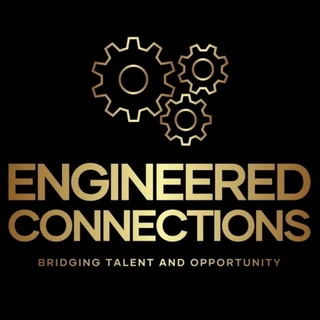The world of work has evolved dramatically in recent years, and the engineering sector is no exception. While historically, engineering roles were viewed as highly site-dependent, recent advances in technology and the changing expectations of the workforce have shown that hybrid work models—where employees split their time between the office, home, and on-site—are not only possible but highly effective. At Engineered Connections, we believe that embracing a hybrid work model can be a game-changer for engineering firms looking to attract and retain top talent. Here’s why:
1. Attracting a Wider Talent Pool
Hybrid work models allow engineering firms to tap into a broader talent pool. No longer constrained by geographical proximity, companies can attract highly skilled engineers from across the country—or even internationally—who may not be able or willing to relocate. For specialized roles that require niche expertise, this opens up opportunities to hire the best, regardless of location.
At Engineered Connections, we’ve seen firms who offer hybrid work gain access to a diverse range of candidates who prioritize flexibility. In a competitive job market, being able to offer work-life balance can give companies a crucial edge.
2. Boosting Employee Satisfaction and Retention
Employee expectations have shifted, and many engineers now value work-life balance as much as they do compensation. Studies have shown that hybrid work models lead to increased employee satisfaction, as they offer more control over how and where work is completed. At Engineered Connections, we’ve worked with engineering firms that report improved retention rates after adopting flexible work policies.
By allowing employees to work remotely for certain tasks—such as design, analysis, and planning—engineering firms can create a work environment that fosters greater job satisfaction, which in turn reduces turnover.
3. Leveraging Technology for Remote Collaboration
Advances in collaborative technology have made it easier than ever for engineering teams to work together, regardless of location. Tools like Building Information Modeling (BIM), 3D simulations, and cloud-based project management platforms allow engineers to collaborate on designs and share data seamlessly, whether they’re in the office or working remotely.
At Engineered Connections, we’ve seen companies that invest in the right technology infrastructure find it much easier to implement hybrid models, keeping their teams connected and productive without being tethered to a single location.
5. Maintaining On-Site Efficiency for Critical Work
While many engineering tasks—such as design, research, and administrative work—can be completed remotely, some roles will always require a physical presence. For activities like site inspections, equipment testing, and construction supervision, on-site work is non-negotiable. However, a hybrid model allows firms to strategically deploy employees on-site when necessary, without requiring them to be physically present every day.
This approach ensures that critical, hands-on work is completed efficiently, while still offering employees flexibility in how they manage other aspects of their workload. Engineered Connections has seen firms successfully balance on-site and remote work by leveraging hybrid models to keep projects moving forward while maintaining employee satisfaction.
6. Attracting Younger Talent
For younger generations entering the workforce, flexibility is often a top priority. According to recent surveys, Gen Z and Millennials are more likely to choose employers that offer hybrid or remote work options. Engineering firms that resist these changes may struggle to attract the best young talent.
At Engineered Connections, we encourage our clients to consider how hybrid work can help them attract bright, emerging engineers who are looking for flexibility and autonomy in their roles.
Final Thoughts
In 2024, hybrid work models are no longer a trend—they’re the future of work. For engineering firms, embracing hybrid work not only offers the flexibility that today’s employees demand but also provides tangible benefits, from increased productivity and employee satisfaction to better talent acquisition. At Engineered Connections, we believe that adopting a hybrid work strategy is a smart move for engineering firms that want to remain competitive in a rapidly evolving market.
By balancing on-site presence with remote flexibility, your firm can attract top talent, retain valued employees, and stay ahead in an increasingly dynamic industry.
